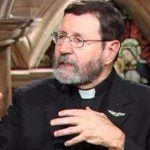A man decides to write about a love affair — how it began, how it progressed, what happened, what was felt.
He may begin this way:
On Raglan Road on an Autumn Day,
I saw her first and knew
That her dark hair would weave a snare
That I may one day rue.
I saw the danger, yet I walked
Along the enchanted way
And I said let grief be a falling leaf
At the dawning of the day.
He might continue this way:
When Irish poet Patrick Kavanaugh penned the poem that became the song “On Raglan Road,” he omitted many details about the relationship (supposedly based on one of his own), including the woman’s name, what they said to each other, how tall she was, how old he was, what she was doing with her life at the time, and on and on.
If he had put all this in, then it wouldn’t be poetry; it would be prose.
But in the lines of the poem, Kavanaugh captures the vital essence of the relationship and what it meant to him. The rest of the factual details are interesting, and have been reported in various sources, having been uncovered over time. But if you didn’t know her name was Hilda, that she was a medical student, that age was a factor, that she married someone else, it wouldn’t detract at all from the power and essential truth of the poetic tale.
Both versions have validity; both are true, but each is told with a different purpose and achieves a different end.
Such it is with creation tales, like the ones explored in the latest episode of National Geographic Channel’s “The Story of God,” airing Sunday, April 24. Host Morgan Freeman looks at a variety of these stories, including this lyrical Navajo one.
Freeman also tries to link creation tales to what science has to say, especially concerning the Big Bang, which is fascinating but rather misses the point of the difference between prose and poetry.
In the Catholic view, the Bible is both prose and poetry, depending what part you’re reading. If you want to dig into what Catholic scholars, the Early Church Fathers, saints and popes had to say about the creation stories in the Book of Genesis, click here, here, here and here.
The Catechism of the Catholic Church says this:
283 The question about the origins of the world and of man has been the object of many scientific studies which have splendidly enriched our knowledge of the age and dimensions of the cosmos, the development of life-forms and the appearance of man. These discoveries invite us to even greater admiration for the greatness of the Creator, prompting us to give him thanks for all his works and for the understanding and wisdom he gives to scholars and researchers. With Solomon they can say: “It is he who gave me unerring knowledge of what exists, to know the structure of the world and the activity of the elements. . . for wisdom, the fashioner of all things, taught me.”121
284The great interest accorded to these studies is strongly stimulated by a question of another order, which goes beyond the proper domain of the natural sciences. It is not only a question of knowing when and how the universe arose physically, or when man appeared, but rather of discovering the meaning of such an origin: is the universe governed by chance, blind fate, anonymous necessity, or by a transcendent, intelligent and good Being called “God”? And if the world does come from God’s wisdom and goodness, why is there evil? Where does it come from? Who is responsible for it? Is there any liberation from it?
…
289 Among all the Scriptural texts about creation, the first three chapters of Genesis occupy a unique place. From a literary standpoint these texts may have had diverse sources. The inspired authors have placed them at the beginning of Scripture to express in their solemn language the truths of creation – its origin and its end in God, its order and goodness, the vocation of man, and finally the drama of sin and the hope of salvation. Read in the light of Christ, within the unity of Sacred Scripture and in the living Tradition of the Church, these texts remain the principal source for catechesis on the mysteries of the “beginning”: creation, fall, and promise of salvation.
Genesis is essentially poetry, meant to express the deep truths, not the literal step-by-step facts, of Creation. Like “On Raglan Road,” there will be some details and information contained therein, but they aren’t the focus of the intent.
Not aiming to be a scientific text, in broad strokes Genesis lays out the beginning of everything, emphasizing that was an act of will, and of love, by God. As He is not outside of existence but existence itself, He didn’t need to create a Universe, but He did and declared it good. It didn’t come from nothing; it came from Him who transcends space and time, who had no beginning and has no end.
God is, as Saint Thomas Aquinas put it — building upon the philosophy of Aristotle — the “Uncaused Cause”:
Now whatever is in motion is put in motion by another…. For motion is nothing else than the reduction of something from potentiality to actuality…. It is therefore impossible that in the same respect and in the same way a thing should be both mover and moved, i.e., that it should move itself. If that by which it is put in motion be itself put in motion, then this also must needs be put in motion by another, and that by another again. But this cannot go on to infinity, because then there would be no first mover, and, consequently, no other mover…. Therefore it is necessary to admit a first efficient cause, to which everyone gives the name of God.
But that doesn’t mean the Catholic Church doesn’t appreciate, or do, science. As I mentioned in an earlier story on the show for The Tidings, the newspaper of the Archdiocese of Los Angeles:
Catholic clergy don’t appear until episode three, “Creation,” when Freeman journeys to Rome to talk to Msgr. Marcelo Sanchez Sorondo, chancellor of the Pontifical Academy of Sciences — and Freeman is very surprised to hear that it was founded in 1603, under first president Galileo.
Freeman also talks to a priest/astronomer from the Vatican observatory. In both cases, the Church avers its welcoming attitude toward science and discusses how the cosmological Big Bang theory blends into the larger theological view of creation. This appears to confound Freeman, who then emphasizes how a snippet of the Islamic creation myth, and that of the Aboriginal people of Australia, also resemble the Big Bang … though it’s a bit of a stretch in both cases.
But, Freeman does end the Creation episode with “as it was in the beginning, is now, and ever shall be, world without end” — omitting all specific theological references, and the “Amen,” and not mentioning that the “Glory Be” is a Catholic prayer.
Genesis is a love song by God to His people, so that they would know why the world came to be, what God thought about it, and what He thinks about all His creatures, including Man. It’s also a reminder that humans are — as Catholics are called to be — in the world but not of it. We are products of the stuff that makes up the planet, or, as astronomer Carl Sagan pointed out, the “starstuff” that makes up the whole cosmos.
But we are also so much more than that.
I express it by saying that our bodies belong to Nature, our minds to ourselves, but our souls, to God alone. Genesis addresses the origins and creation of all three.
And now, the truth of “On Raglan Road”:
Image: Courtesy National Geographic Channel
Don’t miss a thing: head over to my other homes at CatholicVote and the Faith & Family Media blog, and like my Facebook page; also like the Patheos Catholic FB page to see what my colleagues have to say.














